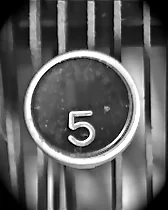5 HOT BOOKS: Woodward on Trump, Dinosaur Fossil Hunters, and More
/1. Fear: Trump in the White House by Bob Woodward (Simon & Schuster)
Woodward’s relentless, tenacious investigation (with Carl Bernstein) played a large part in forcing President Richard Nixon to resign, and the question is whether Woodward’s new book will have the same impact on the current occupant of the White House. Woodward writes about a nervous breakdown of the executive branch and depicts paranoid, ignorant, erratic President. While Woodward’s expose follows on the heels of Michael Wolff’s Fire and Fury and Omarosa Manigault Newman’s Unhinged, which also questioned Trump’s mental stability, his credentials as associate editor of The Washington Post, his two Pulitzer Prizes, and his reputation built on nearly a half century of rock-solid reporting confer an imprimatur of respectability the others lacked – and, unsurprisingly, have helped to make Fear an instant, runaway bestseller.
2. The Dinosaur Artist: Obsession, Betrayal, and the Quest for Earth’s Ultimate Trophy by Paige Williams (Hachette)
In remarkably stylish prose, New Yorker staff writer Paige Williams tells a compelling tale of a rogue fossil hunter from Florida who discovered the 70-million-year-old bones of T. Batar, a cousin of Tyrannosaurus rex, in Mongolia and auctioned off the 24-foot-long skeleton in a New York gallery. Williams did impressive digging of her own, traveling far and wide to uncover her story, and to answer larger questions about ownership of the bones, including whether they can be sold and who should be allowed to buy them. In The Dinosaur Artist, Williams weaves a fascinating story of eclectic, unconventional paleontologists, dealers, museums, and even goverments laying claim to ancient relics that continue to have a powerful fascination in our own time.
3. The Field of Blood: Violence in Congress and the Road to Civil War by Joanne B. Freeman (Farrar, Straus, and Giroux]
In Freeman’s vivid telling, the antebellum Congress was not the lofty pantheon of great men in black frock coats one might imagine. Rather, she has unearthed more than seventy violent incidents between legislators in the House and Senate chambers or nearby streets or dueling grounds, with episodes ranging from caning to bullying. Freeman, a Yale professor and cohost of the wonderful history podcast “Backstory,” ingeniously makes use of the journals of clerk in the House of Representatives Benjamin Brown French of New Hampshire, who recorded not only the violence he witnessed -- like the infamous caning of anti-slavery Charles Sumner -- but his own transformation from an early Jacksonian Democrat to a Republican. This is the history of Congress that did not make it into our civics textbooks, but absolutely should have.
4. The Personality Brokers: The Strange History of Myers-Briggs and the Birth of Personality Testing by Merve Emre (Doubleday)
In her fascinating investigation into the Myers-Briggs Type Indicator, Emre focuses on a Carl Jung-devotee mother and her daughter who were the duo behind the world’s most popular personality test. Neither woman had a psychology degree, but they tapped into the American fascinating with measuring personality, creating four accessible, user-friendly categories: introversion-extraversion, intuition-sensing, feeling-thinking, and judging-perceiving. This is an excellent social and cultural history, which chronicles how a simple test created by earnest amateurs evolved into a hugely lucrative enterprise used widely by institutions like Fortune 500 companies, universities, and the CIA – and morphed into BuzzFeed quizzes, and OKCupid and Tinder profiles.
5. John Woman by Walter Mosley (Atlantic Monthly)
The great creator of crime series starring detectives such as Easy Rawlins, Mosley has written a smart sly novel of ideas featuring the son of brilliant self-educated black man in the East Village, who reinvents himself as the intellectually provocative “John Woman” after he commits a crime. An enigmatic and compelling professor who has been deeply informed by his father’s teachings about the power of narrative, John Woman teaches “Introduction to Deconstructionist Historical Devices” at a university in the Southwest, where he struggles with other faculty members over the meaning of history. Defying genre, Mosley’s latest novel is much like his eponymous hero: speculative, brilliant and wildly original.










